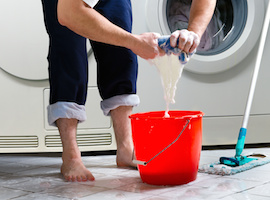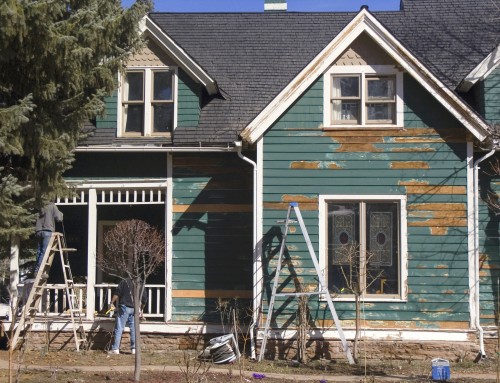 While water may be considered an essential aspect of your life, it can also be devastating when your home experiences a water damage loss. The devastation can be catastrophic, costing thousands to recover and weeks/months to repair. Find out what you need to know about water damage losses and how to prevent them.
While water may be considered an essential aspect of your life, it can also be devastating when your home experiences a water damage loss. The devastation can be catastrophic, costing thousands to recover and weeks/months to repair. Find out what you need to know about water damage losses and how to prevent them.
Tips to Help Protect Your Home from Water Damage
• Routinely check for any possible signs of water leakage. Checking around hoses, water connections, or appliances such as dishwashers, washing machines, or hot water heaters is a great preemptive maintenance approach. If you notice water stains, standing water, or any signs of rotting wood, immediately take further action.
• Check your water bill upon receipt for any abnormal increase in water usage. A spike in your water bill could mean there is a leak somewhere and further inspection may be warranted.
• Ensure that everyone in the home knows where the water shut off valve is located. You may be amazed at how many homeowners have no idea where the shut off valve is located for their appliances. If you do experience an influx of water, immediately shut the water valve off! It is also crucial to identify where your outside water meter is located in order to turn off water to the main house.
• Inspect your water pipes to ensure they are properly insulated. Having the proper amount of insulation helps protect water pipes from freezing. Freezing water pipes that burst can cause significant water damage to your home so when temperatures drastically drop, you may want to turn your water faucets to a slow drip to avoid freezing.
• Replace your washing machine hoses every 5-7 years. A hose that bursts can flood your room in a matter of minutes. Even when your washer is not in use, there is pressurized water in the hoses so having an old, worn, kinked hose can spell trouble if not monitored.
• Partially drain your hot water heater annually. By doing this, you will help extend the life of your water heater by keeping rust and corrosion to a minimum.
• Monitor the water pressure in your home. The average water pressure should be between 60-80 pounds per square inch (PSI). If your water heater is set too high, it can lead to an increase in leaks and ultimately result in water damage. Contact a local, certified N.C. plumber if you aren’t sure how to gauge your water pressure.
An Ounce of Prevention is Worth a Pound of Cure
Taking a few preventative steps to maintain your home is worth the effort and could save you money, time, and inconvenience in the long run. If you have any questions about your N.C. homeowners policy or water damage, please contact our office at 866-869-3335.

 Tom's Blog
Tom's Blog



